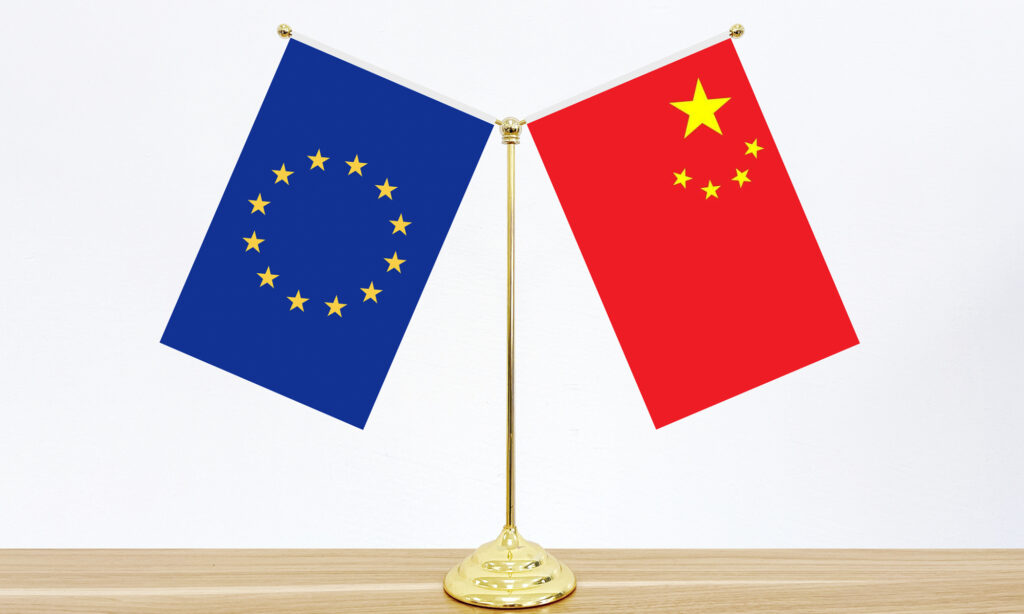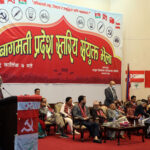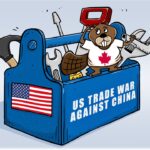Chinese experts said on Sunday that China-EU cooperation on many areas such as climate change remains in focus and the EU should focus on practical cooperation, instead of US-instigated ideological rhetoric, after some EU leaders recently hyped talks of rivalry and tense relations with China, prompting a firm response from China.
The Chinese Mission to EU earlier refuted remarks made by leaders of the 27-nation bloc on China’s policy, saying they were “deeply ideology-oriented,” while stressing that “China and the EU are partners rather than rivals, and that China-EU cooperation far outweighs our competition.”
According to the website of the mission, one European leader commented on the just concluded 20th National Congress of the Communist Party of China (CPC) and China’s policy, saying that China is continuing to reinforce a very assertive and self-reliant course, in an effort to establish its dominance in East Asia and its influence globally.
It is also said that EU-China relations are getting tense and that the Chinese system is fundamentally different from that of the EU, and the EU is aware of the nature of the rivalry between the two sides. It is then suggested that the EU needs to be vigilant when it comes to dependence on China, and it should come up with more tools as a strategic response.
Responding to such remarks, a spokesperson for the Chinese Mission said that the 20th CPC National Congress was held successfully, and no individual and no force can block the CPC’s grand blueprint of leading the Chinese people to achieve the great rejuvenation of the Chinese nation.
“I would urge some people from the European side to have a thorough reading of the report of the 20th CPC National Congress, from which one might get a better understanding of China’s foreign policy. China has always pursued and will firmly pursue an independent foreign policy of peace, and is committed to growing friendship and cooperation in all fields with other countries based on the Five Principles of Peaceful Coexistence.
“In building a community with a shared future for mankind, China will unwaveringly follow a win-win strategy of opening up, and actively participate in the reform and the building of the global governance system,” the spokesperson said.
European Commission President Ursula von der Leyen said on Friday after the recent meeting of the European Council that the EU is witnessing an acceleration of tensions with China, noting that “the Chinese system is fundamentally different from ours and we are aware of the nature of the rivalry,” according to euronews.
“This discussion showed a very clear will to avoid being naive, but neither did we want to embark into a logic of systematic confrontation [with China],” EU Council President Charles Michel said on Friday.
Michel insisted that the bloc has its “own model to develop” at a time of intensifying rivalry between China and the US. “We will always be firm in standing up to defend our principles, democracy and fundamental freedoms,” Michel said.
French President Emmanuel Macron said on Friday that the EU had to re-think its trade dialogue with China, calling for a more even playing field between the two commercial powerhouses.
The spokesperson of the Chinese Mission to EU said that “we hope that the European side will establish a clearer understanding of the current situation, comprehensively and accurately interpret the spirit of the 20th CPC National Congress, approach China-Europe relations in an objective manner, and walk with us in the same direction.”
The spokesperson added that “by upholding the principle of mutual respect and seeking common ground while reserving differences, we can promote the sound and stable development of China-Europe relations, and inject more stability and positive energy into this turbulent and fast-changing world.”
Meanwhile, German Chancellor Olaf Scholz confirmed, on the sidelines of the EU summit, that his trip to China with a delegation of business leaders would happen at the start of November. It comes at a time when Berlin is reviewing its trade relationship with Beijing and Scholz’s coalition is debating whether to allow Chinese shipping giant Cosco to invest in Germany’s largest port in the northern city of Hamburg.
Under the terms of the Cosco deal, first agreed to in September 2021 and subject to regulatory approval, the company would secure a minority 35 percent stake in the container terminal at Tollerort, one of three such sites inside the sprawling Hamburg complex.
However, Scholz is facing opposition on the deal from six federal ministries, including the Greens’ Vice Chancellor Robert Habeck. Lawmakers from two of Germany’s governing parties on Thursday slammed the plan, warning that it poses a national security risk, media reported.
Cui Hongjian, director of the Department of European Studies at the China Institute of International Studies, regarded such opposition from German lawmakers over the deal as “over reaction” and the result of considerations of “political correctness” when it comes to anything related to China.
It is not surprising that the deeply ideology-oriented economic and foreign ministries, which are dominated by the Greens, part of the coalition government together with Social Democrats and Free Democrats, are deliberately creating challenges for Scholz, he said.
Cui told the Global Times this will test Scholz on whether he can hold his ground when it comes to cooperation with China. “Scholz’s Social Democrats were deeply involved in making Germany’s China policy during the Merkel administration and Scholz knows where the interests of bilateral ties lie.”
Wang Yiwei, director of the Institute of International Affairs at the Renmin University of China, told the Global Times that although the idea of seeing China as a rival is becoming dominant in Europe, the partnership between China and the EU in areas such as tackling climate change and the Iran nuclear issue is still clear in the bloc’s relations with China.
Experts said that the EU should remain independent in its China policy, instead of being ideology-oriented led by the US, and focus more on increasing practical cooperation with China that will bring real benefits to the wellbeing of the people in the region.
(Global Times)




